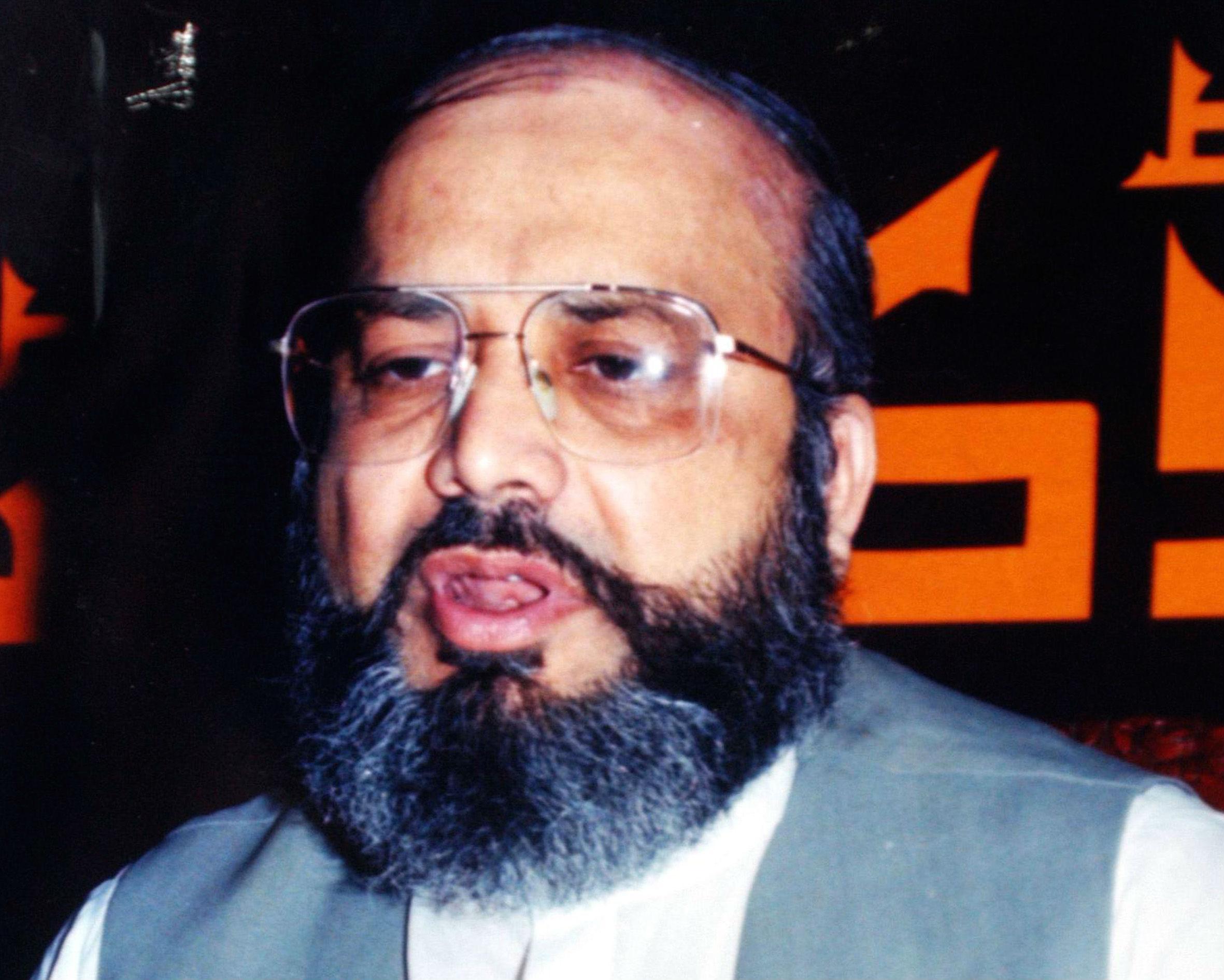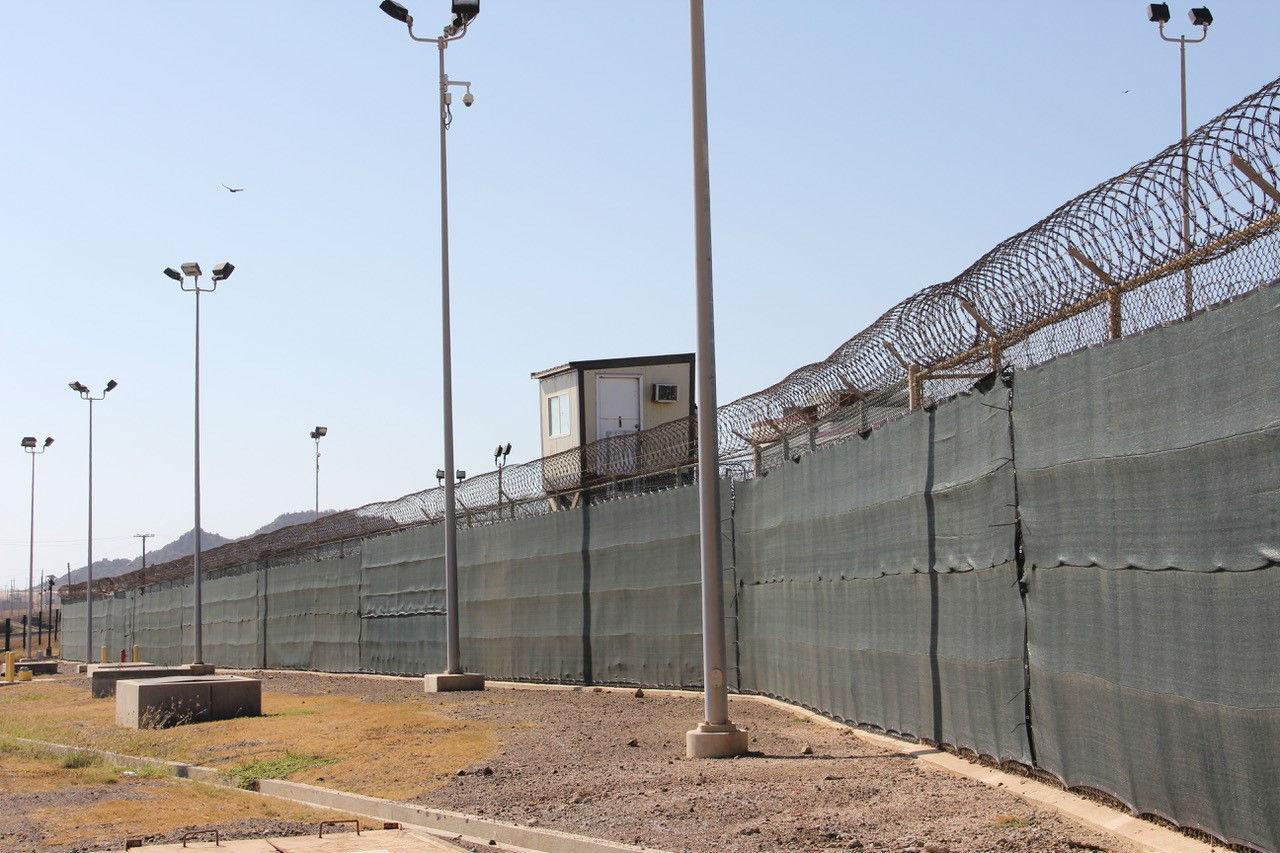Guantanamo Bay inmate refused access to book on non-violence written by bereaved 9/11 relatives
Exclusive: The book discusses the teachings of Martin Luther King

The oldest prisoner at Guantanamo Bay has been refused permission to read a book on pacifism and non-violence written by relatives of victims of the 9/11 attacks.
A lawyer for 70-year-old Saifullah Paracha, who has suffered two heart attacks during his 13 years of incarceration and never been charged, tried to provide him with a copy of September 11th Families for Peaceful Tomorrows: Turning Tragedy into Hope for a Better World.
The book – originally published in January 2003, just 16 months after the series of coordinated attacks that killed almost 3,000 people – focuses on how many relatives who lost loved ones ultimately responded to the atrocity by seeking to promote peace and non-violence. It also discusses the teachings of Martin Luther King and was nominated for the Nobel Peace Prize.

Shelby Sullivan-Bennis, a lawyer representing Mr Paracha, said she tried to present the book to him on a recent visit to the prison camp, located at a US military base on the tip of Cuba. She said officials refused her permission without explaining why.
“It’s shameful that the authorities at Guantanamo are banning books – a policy rightly associated with the most oppressive regimes in history,” said Ms Sullivan-Bennis, who works with Reprieve, the UK-based charity that represents several prisoners at the camp.
“We would like to know, what is so dangerous about the writings of these bereaved families of victims, who espouse the non-violent teachings of Martin Luther King?”
She added: “Their voices deserve to be heard, not censored. The absurdity of this gesture shows Guantanamo for what it is – an affront to US values that must be closed.”
The banning of the book comes as the authorities struggle to deal with a hunger strike by at least half-a-dozen inmates protesting their situation. While Mr Paracha, originally a businessman from Karachi, has never been one of those to go on hunger strike, he told his lawyers he believes officials are responding by engaging in “collective punishment” against all prisoners. Recently, he was dragged from his cell in handcuffs and placed in solitary confinement for three days, without explanation.
Mr Paracha lived in the US for a decade and studied computer systems at the New York Institute of Technology and became a permanent resident. He returned to Pakistan in the mid-1980s where he set up a television production company through which he attempted to arrange an interview with Osama bin Laden.
Officials at Guantanamo declined to explain why the book Ms Bennis was seeking to give to Mr Paracha was deemed inappropriate.
Navy Commander Anne Leanos, a spokesperson for the prison camp, said in a statement: “The Joint Task Force has a standard operating procedure for reviewing items donated to the detainee library. We do not provide details of our standard operating procedures.”

Since it was established in the aftermath of the 9/11 attacks as part of George W Bush’s “war on terror”, almost 800 people have been held on the base, which operates under military law. Among those still held are a handful described as high value prisoners, which include people such as Khalid Sheikh Mohammed, the alleged plotter of the 9/11 attacks.
Today, following the transfer of hundreds of prisoners to their own countries or else to third-party nations, the prison contains just 41 men, each costing $11m a year. In November, the camp found itself at the centre of controversy when it emerged officials were stopping the transfer out of the prison of artwork produced by inmates.
The banned book was edited by David Potorti, who lost his brother Jim in the North Tower after Al-Qaeda militants flew two hijacked planes into the twin towers of the World Trade Centre in New York.
In the aftermath, he sought to make sense of the tragedy and think about the impact not only on US families but on the families of Afghan civilians who were killed in the subsequent US and UK-led military invasion of Afghanistan. He also helped found the group September Eleventh Families for Peaceful Tomorrows.
Speaking from North Carolina, Mr Potorti told The Independent the book he edited was a collection of essays penned by people who had lost relatives and told how they had responded by trying to work for peace, rather than with more violence.
“The response of many was that violence was not the answer,” he said.
He said he could think of no reason why a prisoner at the camp, or anyone else, should be prevented from reading the book unless “the powers that be don’t want us to reduce tension and it is better for them that we stay fearful”.
He added: “The whole thing stinks. I think Gitmo should not exist. It’s obvious the military justice system is not capable of dealing with these cases. It would be much better if they were dealt with by our [regular] judicial system. It would be a lot quicker.”
Join our commenting forum
Join thought-provoking conversations, follow other Independent readers and see their replies
Comments
Bookmark popover
Removed from bookmarks